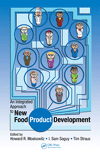Maya-Camille Broussard is telling a story at Harry’s Café. The Compass Group-managed restaurant at the Northwestern University Pritzker School of Law started selling her Justice of the Pies baked goods in January 2020 right before the pandemic started.
“I remember because it was right before we were supposed to do a workshop for kids,” Broussard said.
Connecting with kids, combatting food insecurity, and social justice initiatives are the driving force behind Justice of the Pies. Pies—and social justice—were also a passion of her father, Stephen J. Broussard, a criminal defense attorney who called himself the “Pie Master.” The 1973 graduate of the Northwestern law school was one of a group of students who occupied the university bursar’s office for 38 hours as an undergrad demanding better treatment for Black students.
“Northwestern was always an ideal customer because I like working with partners where I feel I have a story to share,” said Broussard, who earned a master’s degree in theater from Northwestern in 2004. “People are drawn not just to the product but the why behind the product, the story behind the product, and the people behind the product. To be in Harry’s Café, which is in the law school of Northwestern felt like it was kismet.”
Broussard—who prefers cake—says food in crusts, like pies, surpass class and social status. Mexican empanadas, Indian samosas, or Jamaican meat patties are some of the most common foods because they’re portable. Everyone has eaten some kind of sweet or savory pie.
“We are so proud to be part of the story of Maya-Camille Broussard and Justice of the Pies,” said Resident District Manager for the Chicago Campus Kwasi McManus. “Working with local vendors is part of the commitment by Compass—powered by Chartwells Higher Education—to support the businesses where we operate. Justice of the Pies is much more than a local business, however. It’s an agent for change with which we’re proud to affiliate.”
Before the pandemic, Broussard would regularly hold workshops for kids to teach them about food and combat food insecurities. She would expose them to different fruits and vegetables they might not see because of the neighborhoods where they live. The pandemic has made the workshops more important so she holds them virtually when possible.
“These kids are living in neighborhoods where they may be experiencing trauma around food, especially now with them not being able to go to school and get that free, hot lunch from school because maybe their parents lost their jobs and are on unemployment,” Broussard said. “You don’t want kids going through that right now. I can’t save the world from hunger, but if I can at least just affect a group of kids and show them a way to be self-sufficient when it comes to food, then maybe I can do a small part in eradicating food insecurities in their lives.”








